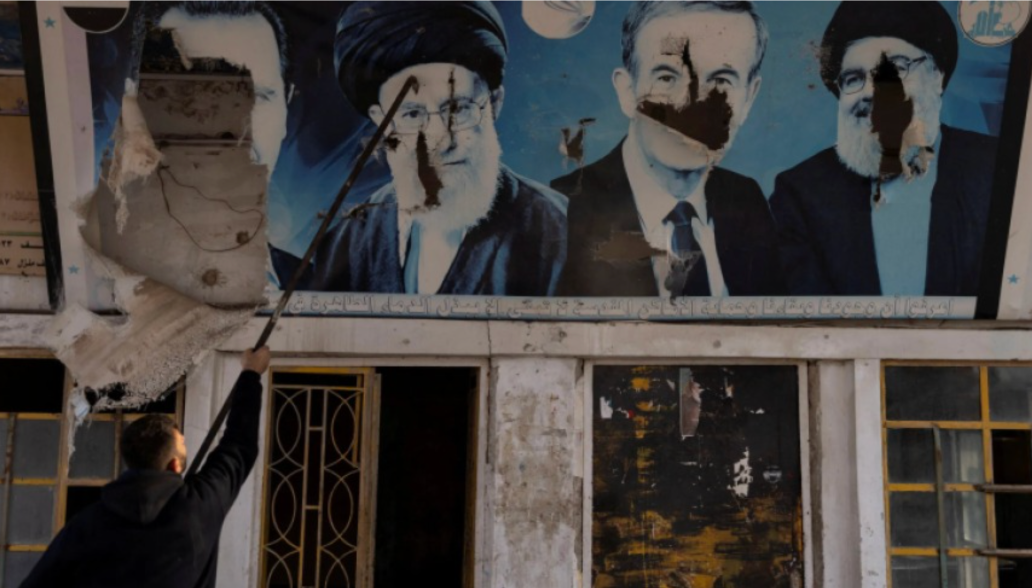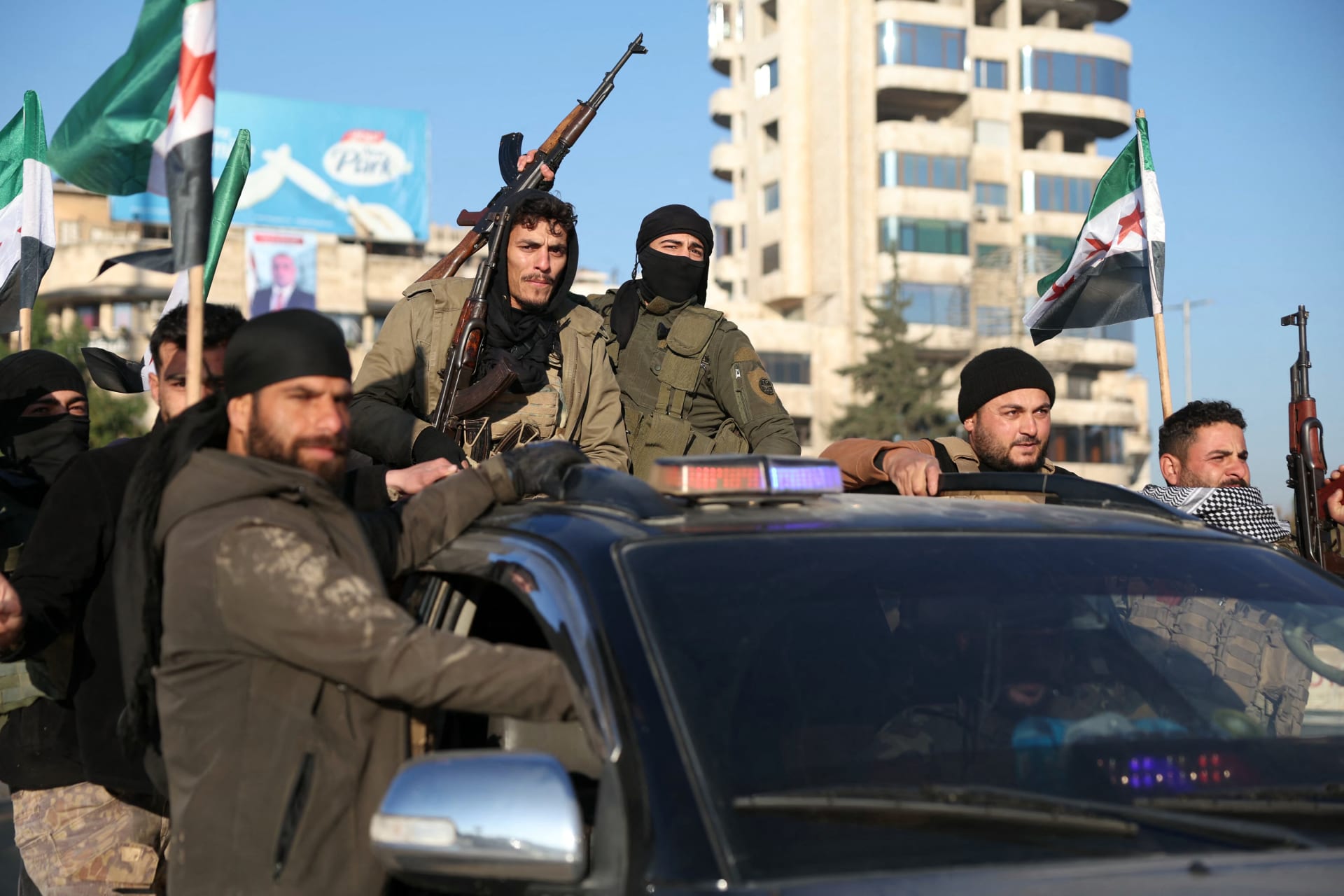Why Has Iran Chosen Hostility Towards the New Syria?

There has been a shift in recent Iranian statements regarding Syria, particularly from the Iranian Supreme Leader.
Iran has emerged as the biggest loser in the Middle East following the fall of Bashar al-Assad’s regime in Syria, signaling the collapse of its influence that it had built over more than a decade.
When Iran intervened in 2012 to support Assad in suppressing the 2011 uprising, it gained significant leverage in Syria, which allowed Tehran to ease international pressure.
However, with Assad’s flight to Russia on December 8, 2024, as opposition forces advanced on Damascus and a new administration took control of Syria, Tehran’s regional ambitions were effectively shattered.

Breaking Free from the Shackles
Since Ahmed al-Sharaa took office, he has emphasized that “what happened in Syria is a victory over the Iranian project, which posed a threat to the region.”
“There is no justification now for any foreign intervention in Syria after the Iranians left,” he stated in a media interview.
Iran acknowledged the shift in Syria’s position through Foreign Minister Abbas Araghchi, who told Alghad TV on December 21, 2024, that “Syria has left the axis of resistance led by Iran to fight Israel and the United States in the region.”
However, Iranian Supreme Leader Ali Khamenei made a provocative statement toward the new Syrian government, urging young Syrians to “stand firm and resolute against those responsible for the security breakdown and its execution.”
“We expect the events in Syria to bring forth a group of honorable and strong individuals because the Syrian youth have nothing to lose. Their schools, universities, homes, and streets are unsafe,” Khamenei said in a speech aired on Iran TV on December 22.
In response, Asaad al-Shibani, the foreign minister of the transitional government in Syria, warned Iran against “spreading chaos” in Syria, urging Tehran to respect the will of the people and Syria’s sovereignty and integrity.
“Iran must respect the will of the Syrian people and the sovereignty and integrity of the country. We warn them against spreading chaos in Syria and hold them responsible for their recent statements,” al-Shibani wrote on X last week.
Undoubtedly, the crimes committed by Iranian militias in Syria and their support for Bashar al-Assad in killing and displacing Syrians over the past decade complicate the trust-building process with the new Syrian government at this stage. Some Syrian legal experts call for caution in dealings with Iran, emphasizing the need to focus on reparations for the Syrian people and state, given the harm Tehran caused to both Syrians and the country’s infrastructure during its military alignment with the ousted Assad regime.
Iran’s Foreign Ministry spokesman, Ismail Baqaei, acknowledged in a press conference on December 23 that there had been no direct communication between Tehran’s government and Syria’s new administration under Ahmed al-Sharaa.
Baqaei claimed that Iran’s previous military presence in Syria was aimed at “fighting terrorism,” as per IRNA.

Deliberate Confusion
There is no doubt that the political change in Syria has dealt a blow to the Iranian axis in the region, starting with Lebanon and then Syria. This is especially true given that the direct route for Hezbollah from Tehran to Beirut via land is now out of service.
Iran's dream of accessing the Mediterranean has ended, as has the collapse of the economic projects it had hoped to exploit during the reconstruction phase, which it had fought to dominate in recent years.
According to Iranian government spokesman Ismail Baqaei, all diplomats, military advisors, and Iranian citizens left Syria just before the fall of Bashar al-Assad's regime.
Russian President Vladimir Putin acknowledged on December 19 that the Russian military “removed 4,000 Iranian fighters” from Syria at Tehran's request on December 10, 2024, through the Russian Hmeimim Airbase in Latakia province.
In light of these developments, Iran has worked to spread messages of confusion and dissatisfaction with the new political change in Syria.
Tehran has not sent reassuring signals to the Syrian people or acknowledged the victory of the Syrian revolution.
Statements by Iranian officials have raised concerns within the new Syrian administration.
Iranian affairs writer Ammar Jalo told Al-Estiklal that the fall of Iran's main ally in the region has repercussions for the structure of the Iranian regime and its future.
“There is internal contradiction within Iranian statements regarding Syria, some see the fall of Bashar al-Assad’s regime as relieving Iran of the financial and military burdens that ultimately weigh on Iranian society.”
However, Jalo continued, “There has been a shift in recent Iranian statements on Syria, particularly from the Iranian Supreme Leader, signaling that the regime has awoken from the shock and realizes that the loss of Assad’s regime may bring future consequences for Iran itself.”
“The lack of communication between Iran and the new Syrian administration increases provocative statements, calling for unrest, this indicates that Iran is returning to a strategy of provocation, especially since spreading chaos is now difficult due to mounting U.S. and Israeli pressures,” Jalo said.
“However, there is concern that Iran may rekindle ties with the local groups it has nurtured in Syria for over a decade, creating challenges for the new Syrian regime.”
“Iran might also exploit any potential U.S. disengagement from the Syrian Democratic Forces and open channels with this faction if it stands isolated against Turkish pressure and Damascus' authority,” he added.

Refusal to Accept Change
There are those who believe that Iran will face a legal battle with the Syrian state in the near future, involving the preparation of a “compensation memorandum” against Iran.
For this reason, statements made by the Iranian Supreme Leader have been seen as incitement to resist the new Syrian administration.
This is particularly evident as the new Syrian administration has prioritized reestablishing diplomatic ties and reopening embassies, yet the prospect of restoring relations with Tehran remains met with caution and hesitation.
The Iranian Foreign Minister, following a government meeting on December 25, stated that it was too early to judge the future developments in Syria, pointing out that many factors are influencing the situation in Damascus.
Araghchi acknowledged that significant changes are on the horizon, emphasizing that it is too early to draw conclusions about the political shifts taking place.
Fars News Agency recently issued an unexpected critique, claiming that Bashar al-Assad ignored the guidance of the Islamic Republic. This remark coincides with mounting regional and international criticism of Tehran’s approach to Syria in recent years.
Turkish Foreign Minister Hakan Fidan, whose country has emerged as a key backer of Syria's new leadership, said, “Iran will face a lesson from the unfolding developments in Syria.”
Barbara Leaf, U.S. Assistant Secretary of State for Near Eastern Affairs, said after meeting with Ahmed al-Sharaa in Damascus on December 22, “If I’m to judge by today, Iran will have no role whatsoever, and it shouldn’t.”
“Frankly, Iran has had decades now of the most predatory destructive behavior and presence in Syria and during the war itself, of course, mustered foreign militias, its own IRGC forces, Hezbollah fighters, and really preyed upon and really viciously brutalized the Syrian people,” she added.
In this context, Majid Mohammad Sharifi, an Assistant Professor of International Relations at Kharazmi University, wrote in an article for the reformist Ham-Mihan newspaper, “Efforts to build a new security system in the Middle East will have dire consequences for Iran, consequences that cannot be ignored.”
“Understanding the nature of this transformation and the foundations of the emerging system requires thinking based on facts, avoiding any fantasy, and attempting to formulate a comprehensive strategy that aligns with the ongoing developments.”
Sources
- Syria officially leaves the "Axis of Resistance" and appointments in the new Syrian government [Arabic]
- Syrian Foreign Minister: We warn Iran against spreading chaos in our country [Arabic]
- Top US diplomat says Iran won’t have future role in Syria after meeting HTS leader
- New Competition/After the Fall of Bashar al-Assad in Syria, Regional Actors Will Compete in Shaping the Regional Security Order [Persian]
- Al-Sharaa confirms the failure of Iran’s project in Syria, and Hezbollah complains about losing its supply routes [Arabic]













